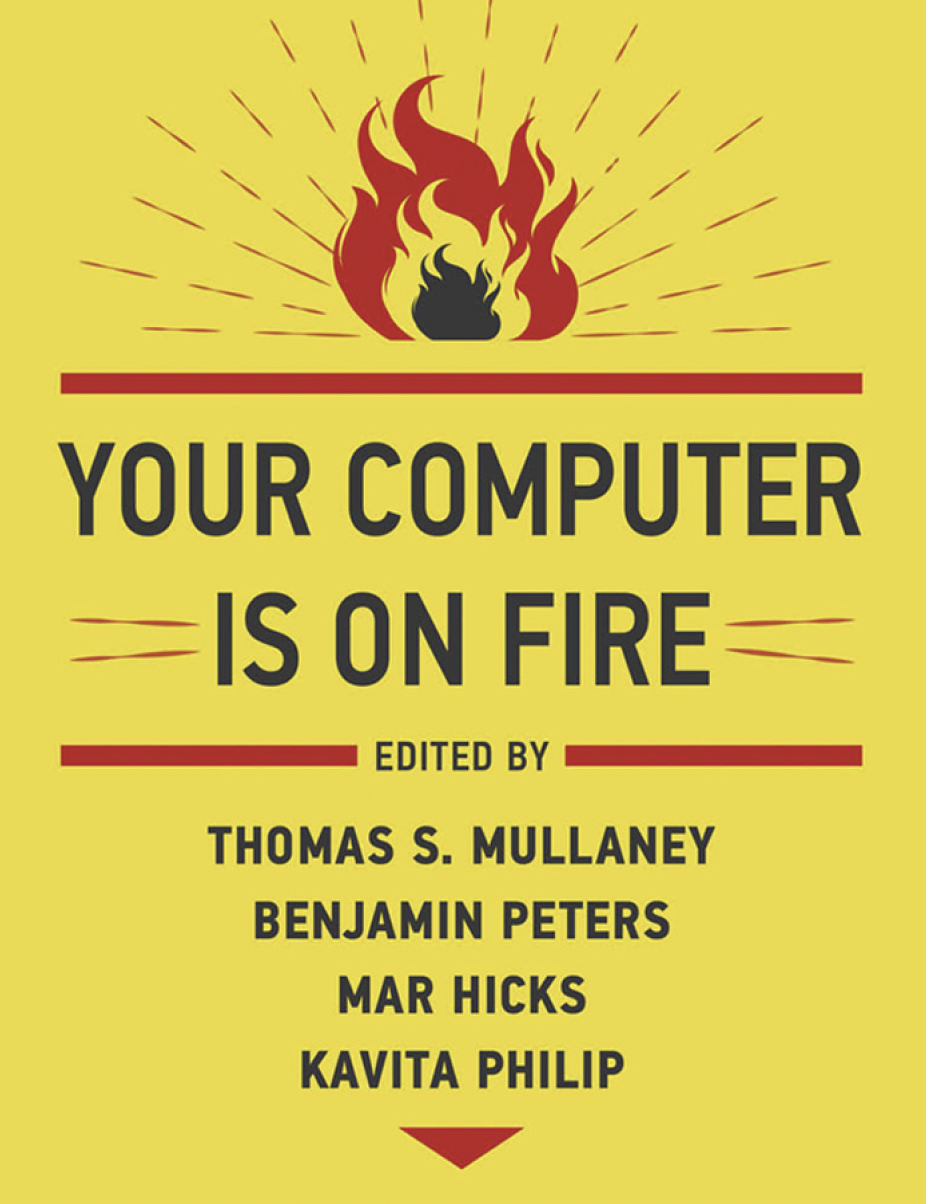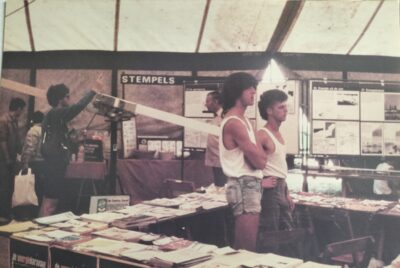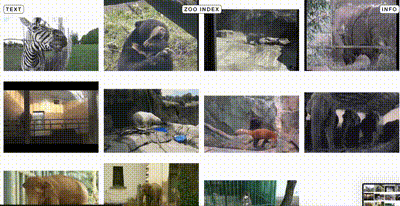“This book sounds an alarm: we can no longer afford to be lulled into complacency by narratives of techno-utopianism, or even techno-neutrality. We should not be reassured by such soothing generalities as “human error,” “virtual reality,” or “the cloud.” We need to realize that nothing is virtual: everything that “happens online,” “virtually,” or “autonomously” happens offline first, and often involves human beings whose labor is deliberately kept invisible. Everything is IRL. In Your Computer Is on Fire, technology scholars train a spotlight on the inequality, marginalization, and biases woven into our technological systems.”
https://www.penguin.co.nz/books/your-computer-is-on-fire-9780262539739
“Do the authors in this volume speak as Luddite saboteurs, plotting to empty the technological theater of its talented inventors? Do we seek to cause a technophobic panic that disrupts modernity itself? Do we hate progress? No, no, and no. But we do seek to interrogate the terms of such questions, suggesting that terms like “inventor,” “modernity,” and “progress” might have histories and futures that hold the key to other kinds of worlds. Let’s examine our assumptions about “inventors” and their individual heroics. Are inventors individual geniuses, sui generis generators of unprecedented insights? Or do they build on a host of other human and infrastructural affordances, deploying the public domain to synthesize their findings, only to jettison that collective work in order for their insight to be celebrated as singular? Let’s untangle the diversity of threads that weave together the thing we call “modernity.” Is it a story of Western rationality, clearly demarcated from premodern primitives? Or is it a multitextured skein formed of technology, poetry, craft, philosophy, fiction, with room for all the other forms of expression still to come? Let’s disaggregate what we mean by “progress.” Is it a teleological sprint that sloughs off all previous experiments as just so many erroneous interludes, explaining away disasters as aberrations? Or is it a labyrinth of ideas and practices that traces circles and spirals in time even as it generates both ruthless hierarchical striations and egalitarian leveling impulses? To all three questions, we answer that we’re wagering our chips on the second set of options.
We choose complex, contradictory, contingent explanations over just-so stories. We corral humanist, technical, global, contemporary, local, novel, and long-standing models to explain the tangled histories that led to present-day arrangements that seem natural and inevitable. … We strive to build more complicated historical narratives from the archival and lived traces of these technological stories, even while attempting to understand why it is that many of us started out believing the simpler answers to these questions.“
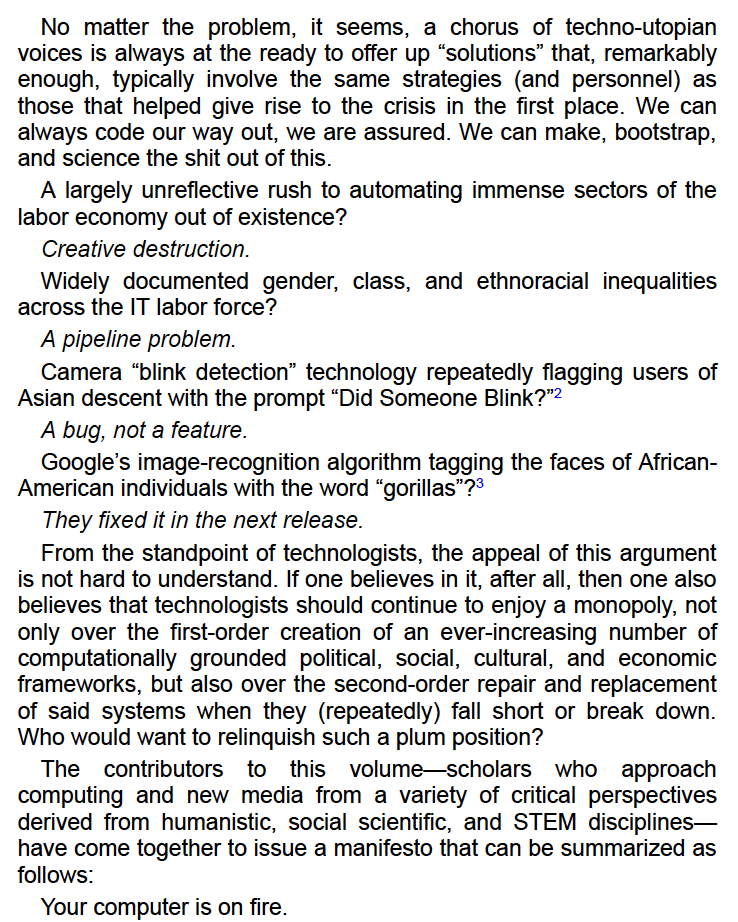
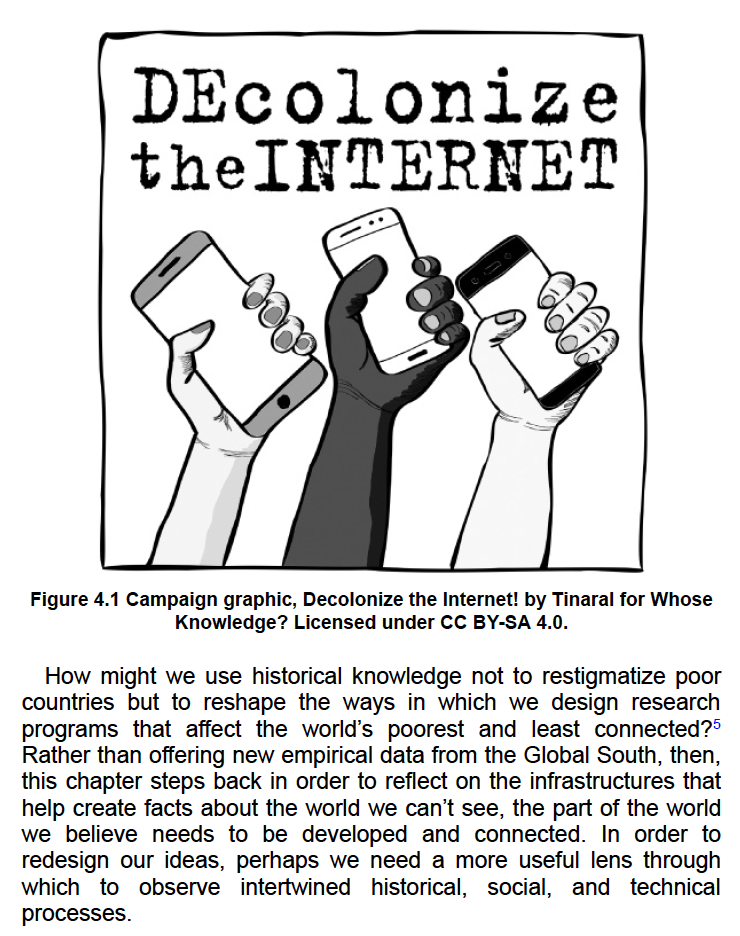
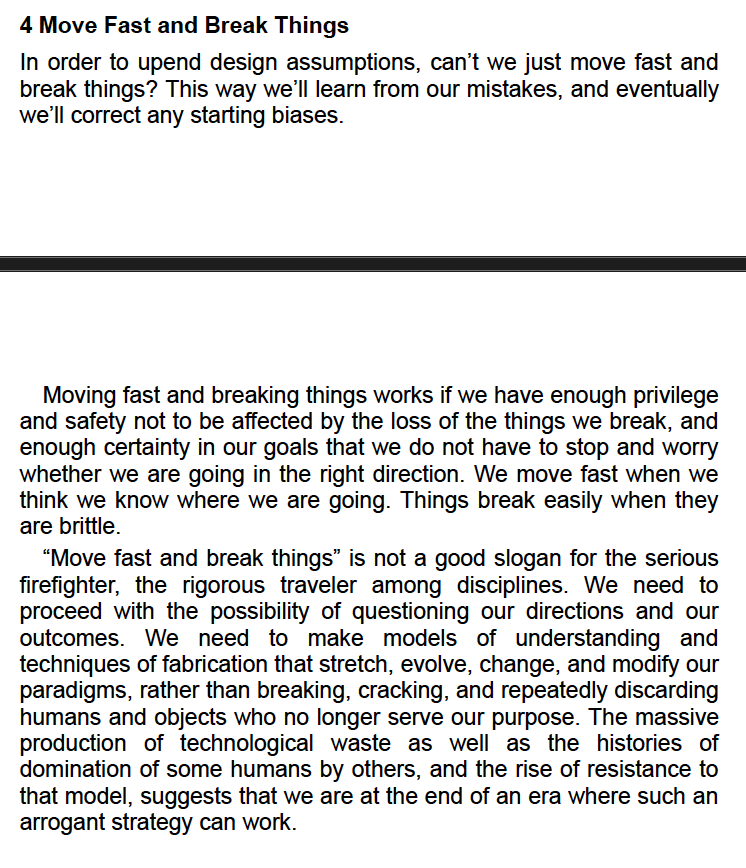
“To formulate the terms of this debate, technologists, political theorists, and activists will have to forge new kinds of engagements, both contentious and collaborative, with each other.“
